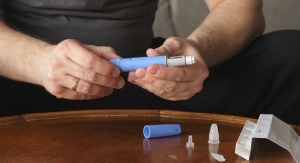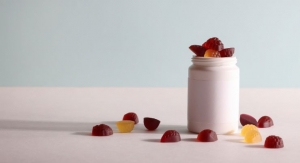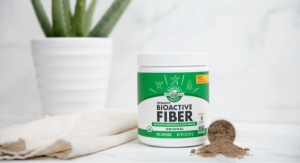06.21.21
Unibar Corporation recently announced that a study on capsanthin which it funded concluded that capsanthin reduced intraocular pressure (IOP) in animal models, suggesting that Unibar’s capsanthin ingredient, CapsiClear, could support the ocular system’s ability to balance this glaucoma risk factor.
Capsanthin is a lipophilic carotenoid, primarily found in the pericarp of ripe red peppers. It’s also responsible for the red color of paprika, and is present in an esterified form with fatty acids. Lutein and zeaxanthin, both leading ingredients in the eye health category, also belong to the carotenoid family, and likewise, capsanthin displays high antioxidant activity. However, neither lutein nor zeaxanthin have been clinically evidenced to relieve IOP.
The published study observed an IOP-lowering effect in Albino Wistar rats at three dosage groups (20, 40, and 80 mg/kg of bodyweight daily) – and one standard treatment group using pilocarpine for 28 days.
“Until now, topical ocular drops were the only way to address elevated IOP but capsanthin presents an alternate and efficacious option via an oral application,” Sevanti Mehta, president of Unibar, said. “Increased IOP is a major risk factor for eye damage and eventual vision loss because it can lead to mechanical stress and tissue damage within the retina. This initial research on our CapsiClear shows that incorporating capsanthin into a regular diet via supplementation can provide significant help and potentially reduce that risk.”
In the present study, after 10 days of treatment, researchers observed significant decreases in IOP and, after 28 days, IOP returned to normal levels that were comparable to the control group. Capsanthin was also observed to deliver similar efficacy to the test drug pilocarpine, without any negative side effects such as toxicity, mortality, changes in body weight, or feed consumption.
“This study is one of several on capsanthin that we hope to see published over the coming year to solidify our claim that it is the most powerful and holistic natural solution for ocular nutrition,” Mehta continued. “We spent eight years developing CapsiClear and are happy to see the hard work pay off with outstanding results both with the research and with consumer response to currently available products containing our capsanthin ingredient.”
CapsiClear is a patent-pending combination of carotenoids sourced from chili peppers, and is the first ingredient to be standardized to 50% capsanthin, Unibar said. CapsiClear is formulated to support vision health and performance by helping to increase macular pigment optical density, protect the eyes from the effects of blue and white light, improve photostress recovery for decreased eye strain, and reduce IOP.
Capsanthin is a lipophilic carotenoid, primarily found in the pericarp of ripe red peppers. It’s also responsible for the red color of paprika, and is present in an esterified form with fatty acids. Lutein and zeaxanthin, both leading ingredients in the eye health category, also belong to the carotenoid family, and likewise, capsanthin displays high antioxidant activity. However, neither lutein nor zeaxanthin have been clinically evidenced to relieve IOP.
The published study observed an IOP-lowering effect in Albino Wistar rats at three dosage groups (20, 40, and 80 mg/kg of bodyweight daily) – and one standard treatment group using pilocarpine for 28 days.
“Until now, topical ocular drops were the only way to address elevated IOP but capsanthin presents an alternate and efficacious option via an oral application,” Sevanti Mehta, president of Unibar, said. “Increased IOP is a major risk factor for eye damage and eventual vision loss because it can lead to mechanical stress and tissue damage within the retina. This initial research on our CapsiClear shows that incorporating capsanthin into a regular diet via supplementation can provide significant help and potentially reduce that risk.”
In the present study, after 10 days of treatment, researchers observed significant decreases in IOP and, after 28 days, IOP returned to normal levels that were comparable to the control group. Capsanthin was also observed to deliver similar efficacy to the test drug pilocarpine, without any negative side effects such as toxicity, mortality, changes in body weight, or feed consumption.
“This study is one of several on capsanthin that we hope to see published over the coming year to solidify our claim that it is the most powerful and holistic natural solution for ocular nutrition,” Mehta continued. “We spent eight years developing CapsiClear and are happy to see the hard work pay off with outstanding results both with the research and with consumer response to currently available products containing our capsanthin ingredient.”
CapsiClear is a patent-pending combination of carotenoids sourced from chili peppers, and is the first ingredient to be standardized to 50% capsanthin, Unibar said. CapsiClear is formulated to support vision health and performance by helping to increase macular pigment optical density, protect the eyes from the effects of blue and white light, improve photostress recovery for decreased eye strain, and reduce IOP.




























